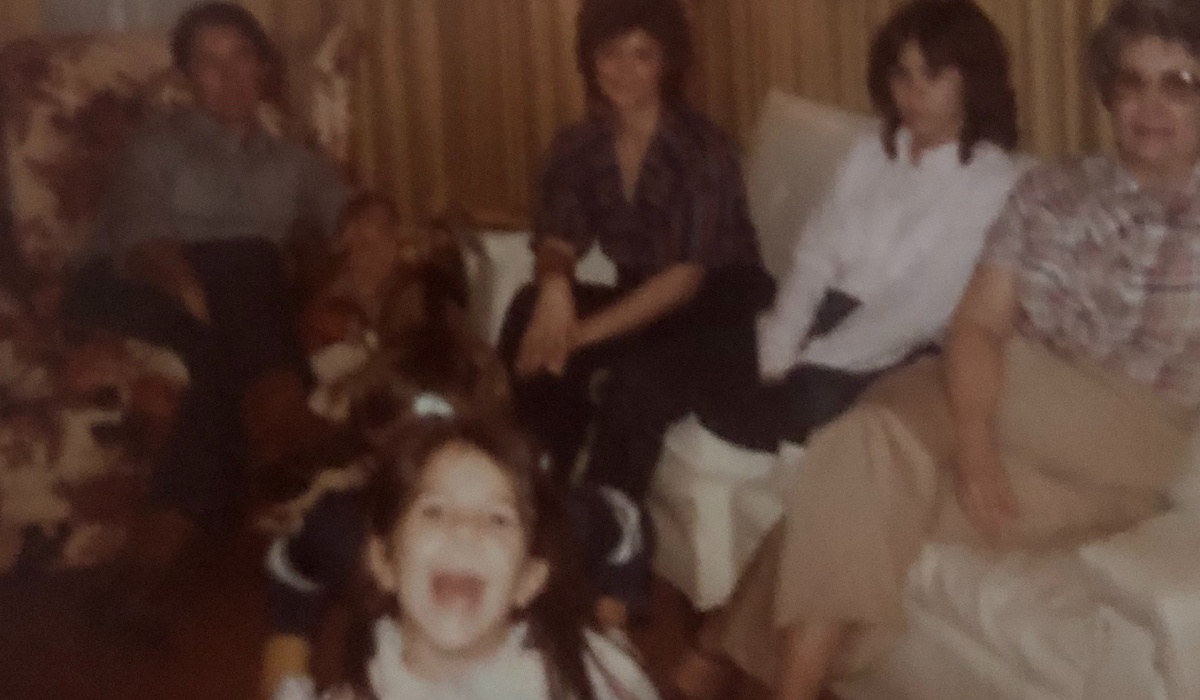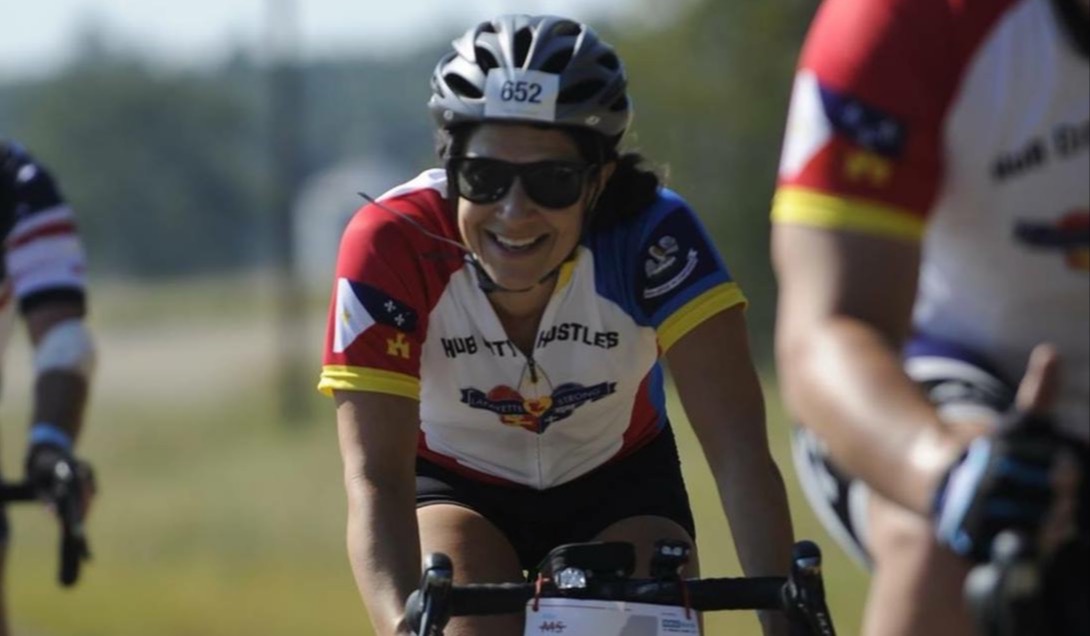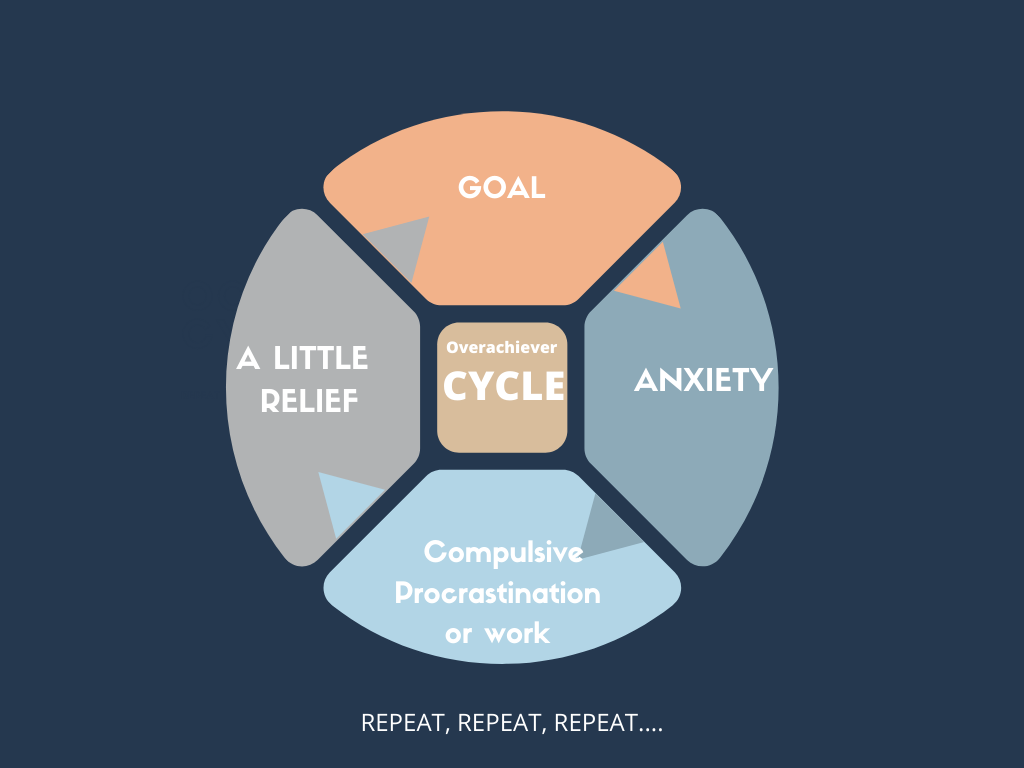Why Am I so Anxious?
I’ve been called “nervous” for as long as I can remember. Even as a child, the label stuck. Looking back now, I can see how early experiences like...
5 min read
KD HOLMES, LPC, EMDR CERTIFIED, BTTI TRAINED
:
Feb 23, 2021 8:48:17 AM

I wish I could say that a moment of profound inner wisdom led me to recognize the need to rein in my overachieving tendencies and gracefully begin the process of change. But if years of striving for perfection have taught me anything, it’s this: change rarely arrives seamlessly, no matter how carefully it’s planned. Overachieving anxiety has a way of creating an idealized version of change in my mind-smooth, logical, and painless.
In the world we actually live in-the messy, human one-reality has a much sharper edge. Growth is rarely tidy. And real, lasting change almost always asks us to sit with discomfort, uncertainty, and struggle before anything truly shifts.
The truth is, I didn’t choose to slow down. My body decided for me when illness left no alternative. My declining health became a relentless force, tearing through the walls I’d carefully built around my overachiever instincts. At first, I resisted fiercely-flat-out refused to yield, tried to power through. It took months of fighting against my body’s clear signals before I finally realized that surrender wasn’t weakness; it was my only path forward.
Looking back, I can only chuckle at the stubborn streak that has defined me since childhood. Even as a newborn, I came into this world hardheaded, determined to do things my way-even when "my way" wasn’t working. For my body to give out, to bring me to my knees, it had to endure so much. It had to endure me.
The photo above captures a turning point on this rocky road to surrender-a moment in Bali when my illness began to rear its head. It’s funny how moments can hold truths that we don’t immediately grasp. At the time, I thought I was managing the cracks forming in my carefully constructed life. When I look at that photo now, it’s a reminder of how much life demands that we flow-quite literally, in this case. That shared water I hesitated to walk through (gross!) sums it up perfectly-sometimes you simply have to go with the flow, no matter how uncomfortable or inconvenient it feels. (sobbing)
The roots of overachievement run deep. For me, they’re tangled up in developmental trauma-something I carried within me without knowing the weight it imposed. I don’t often talk about it openly, but growing up in the 1980s meant my father’s parenting approach reflected what most believed to be "normal" at the time. Of course, he couldn’t have known the long-term impact it would have. It took me years to realize how much these early experiences fueled the silent anxiety that drove me toward perfectionism.
For a long while, I acted against that anxiety, actively trying to defy its grip. But here’s the thing-it’s not enough just to push back. The anxiety always found a way to assert itself, overruling my best intentions. Real relief didn’t come until I confronted the trauma itself and tended to the emotional wounds at its core.
This is where I found my anchors in powerful therapeutic frameworks like EMDR (Eye Movement Desensitization and Reprocessing), and my personal favorite, DBR (Deep Brain Reorienting). These tools offered me far more than temporary relief; they became essential allies in releasing the internal forces driving my anxiety. Each session chipped away at that reactive tension inside me, allowing my mind and body to process and release old trauma responses.
Therapy has been-and continues to be-an indispensable part of the equation. Monthly sessions with my therapist act as a stabilizing force, helping me unpack not only the trauma but also the compulsive overachiever urges that feel so ingrained within me. Therapy keeps me accountable for my growth-even when, especially when, it feels hard to stay consistent. Growth is a lifelong process, and if I’m not willing to practice what I preach, then I’m not really on this path for the long haul.
I can’t overstate the power of sleep in healing both the mind and body. For me, learning about sleep wasn’t just interesting; it was transformational. Diving into podcast episodes from platforms like HPHI.life revealed the intricate connections between compulsive habits, nutritional choices, and our ability to rest. That knowledge reshaped everything I thought I knew about sleep and drastically changed my bedtime rituals.
Some strategies that have been game-changers for me include establishing a two-hour pre-bed “dark time,” soaking in hot baths, sipping calming teas, and-brace yourself-taking ice baths. Believe me, I was skeptical of that last one, but the impact on calming my overactive mind has been incredible. Blue light-blocking glasses have been another unexpected ally, shielding me from the harsh effects of artificial lighting in the evenings.
Beyond that, I've started tweaking my exercise routine to align with my body’s natural rhythm. It’s been a long, trial-and-error process because my physiology is predisposed to emotional and physical “buzz” that easily disrupts sleep. There are still nights when even minor disruptions-like indulging in a love of chocolate a little too close to bedtime-throw me off course. But I’m learning to respond with curiosity rather than frustration, listening to my body like an experiment in progress.
Confession time-when my doctor first suggested scaling back my high-intensity workouts, I was horrified. For someone who adored grueling endurance sports, the idea of gentle exercises like walking felt… absurd. But I’ve been humbled, and now I reluctantly acknowledge that my body truly thrives at a slower pace.
These days, I’ve developed an appreciation for my so-called “old lady walks.” What started as begrudging compliance with medical advice has transformed into precious moments of connection-sometimes with myself, sometimes with my dear walking partner. Sure, I still indulge in intense workout sessions once a week or so-that part of me isn’t going anywhere-but I’ve found a joy in simplicity that’s hard to describe.
The fight against overachievement isn’t a single battle; it’s a daily practice. I've leaned heavily on ERP (Exposure Response Prevention) and DBT (Dialectical Behavioral Therapy) to manage my mental loops and compulsive thought patterns. ERP has been essential in helping me identify and resist behaviors that only aggravate anxious tendencies, while DBT has taught me to use intentional habits to counteract those same feelings of urgency.
The biggest takeaway? Habits shape emotions, not the other way around. By consciously choosing practices that defy anxiety-fueled urges, I’ve slowly rewired my internal response patterns. It’s still a work in progress, but these frameworks have opened the door to freedom I didn't think was possible.
Change doesn’t come only through heavy lifting. Some mornings, it starts with letting go-turning up the music and surrendering to joy. That’s right, part of my healing ritual is a good old-fashioned car dance party. Rap, EDM, Tool-whatever grabs me in that moment, I let it carry me into the day.
For others, that morning spark might come through meditation, deep prayer, or listening to an inspiring podcast. What matters isn’t the method. What matters is the intention-to kickstart your day from a place of curiosity, joy, or gratitude. I call it “growing happiness” because I’ve learned that actions cultivate emotions.
These strategies represent some of the tools that have helped me begin healing my overachievement anxiety-a journey that has been anything but linear. Each step, no matter how small, has been an integral part of my growth. I share these experiences not just to highlight the actions I’ve taken, but because they embody a truth I hold close to my heart-we heal as much by acknowledging our shared humanity as we do by actively choosing to take steps forward. Recognizing that we are not alone in our struggles builds connections, offering us the compassion and strength to keep going even when the path feels uncertain.
For therapists, and anyone navigating their struggles, this shared humanity forms a vital bridge. It connects us not only to others but also to ourselves, fostering growth, deeper understanding, and the ability to help others live more fully and authentically. Change is rarely about giant leaps-it’s about the accumulation of small moments of courage, reflection, and kindness, both toward ourselves and others.
Wherever you are on your path, know this-progress is built on small steps and every single step matters. Even if it feels like you're moving slowly, you’re still moving forward. Keep walking. Keep reaching out. Keep listening, both to yourself and to others.
You are not alone on this journey. Like a marathon runner leaning on the guidance of a coach, having the right support-a therapist-can make all the difference. Change, especially for those of us driven to overachieve, is not something to tackle in isolation. Imagine this process as a long, winding path; a companion by your side helps you navigate the steep climbs and uneven terrain, ensuring you stay steady and focused.

I’ve been called “nervous” for as long as I can remember. Even as a child, the label stuck. Looking back now, I can see how early experiences like...

Overachieving is a complex web of perfectionistic behaviors, personality traits, mental health challenges, personal history, and social influences. ...

One of the fundamental pillars of my therapeutic approach focuses on adults who find themselves entangled in the intricate web of anxiety and...